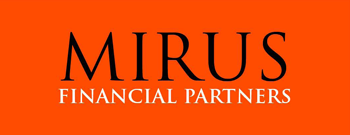How Business Owners Can Manage Personal Wealth
Submitted by MIRUS Financial Partners on March 18th, 2025
Running a business comes with plenty of financial challenges. Between managing cash flow, reinvesting for growth, and making sure your employees have great benefits—like a solid 401(k) plan—it’s easy to put your own financial future on the back burner. But as a business owner, your personal wealth and retirement security are just as important as your company’s success. The key is finding a balance between growing your business and building a strong financial foundation for yourself.
At Mirus Financial Partners, we help business owners like you navigate the complexities of wealth management, ensuring both your business and personal finances are working together to create long-term success. Here’s how you can take a smart, strategic approach to your financial future.
Making the Most of Tax-Efficient Investing
Taxes can take a big bite out of your earnings, but with the right strategy, you can reduce what you owe and keep more of what you earn. Business owners have access to several tax-advantaged retirement accounts, like a Solo 401(k), SEP IRA, or SIMPLE IRA, which allow for higher contributions than traditional IRAs while also lowering taxable income.
For those looking to ramp up retirement savings even further, a cash balance plan could be a great option, allowing for six-figure contributions while providing substantial tax benefits. Additionally, a well-thought-out investment approach—such as placing income-generating investments in tax-advantaged accounts and keeping long-term assets in taxable accounts—can help minimize taxes over time.
Don’t forget to take advantage of business deductions. In many cases, contributions to retirement plans, health savings accounts (HSAs), and other business-related expenses can help lower taxable income while simultaneously building wealth.
Planning for Retirement Without Relying Solely on Your Business
It’s common for business owners to assume their company will fund their retirement, but relying too much on your business as your primary asset can be risky. A well-rounded retirement plan that includes savings and investments outside of the business can help ensure financial security in a range of financial circumstances.
Diversification is key. While your business is an important asset, investing in personal retirement accounts ensures you're not putting all your eggs in one basket. If you offer a 401(k) plan for your employees, structuring it wisely can benefit both you and them. For example, a Safe Harbor 401(k) allows you to contribute more while keeping your plan compliant with IRS regulations.
It’s also important to think about what happens to your business when you’re ready to retire. Whether you plan to sell it, pass it down to family, or transition to an employee stock ownership plan (ESOP), having a clear exit strategy ensures a smooth transition and financial stability in retirement.
Balancing Business Cash Flow with Personal Wealth
One of the biggest challenges for business owners is deciding how much to reinvest in the business versus how much to take home. It’s tempting to pour everything back into the company, but that can leave you financially vulnerable if things don’t go as planned.
Keeping a business emergency fund is one way to help you weather slower periods without disrupting your personal finances. Structuring your compensation wisely—whether through salary, dividends, or a combination of both—can also help optimize taxes while maintaining a steady income. And while reinvesting in your business is important, it’s equally crucial to set aside personal savings and investments that can help ensure financial security outside of your company.
Turning Business Success into Long-Term Wealth
Your business can do more than just provide income—it can be a powerful tool for building long-term wealth. One way to leverage business success is by using profits to fund investments like real estate, stocks, or other passive income opportunities.
Another strategy is setting up a key-person life insurance policy, which not only protects your business in case something happens to you but can also serve as a financial asset for your family or business partners. If you have co-owners, a well-structured buy-sell agreement ensures your financial interests are protected in case of an unexpected transition.
Building a Financial Plan That Works for You
Ultimately, your business and personal wealth should work together as part of a larger financial plan. A strong plan helps you reduce taxes, maximize retirement savings, and strike the right balance between reinvesting in your business and securing your own financial future. It should also include strategies for risk management and succession planning to ensure a smooth transition when you’re ready to step back.
At Mirus Financial Partners, we understand the unique challenges business owners face when it comes to financial planning. We’re here to help you make smart, forward-thinking decisions that grow your wealth—both in your business and beyond. If you’re ready to take the next step in securing your financial future, let’s talk. Contact us today, and let’s build a plan that works for you.
Mirus Financial Partners provides financial planning and investment advisory services; however, does not employ tax professional. The information provided in this article is for general educational purposes only and should not be considered tax advice. Tax laws and regulations are subject to change and may vary based on individual circumstances. Before implementing any financial strategies, always consult with a qualified tax professional to ensure they align with your specific tax situation and financial goals.
A diversified portfolio does not assure a profit or protect against loss in a declining market.
All investments carry inherent risks, including the potential loss of capital. Past performance is not indicative of future results, and there are no guarantees that any investment strategy will be successful. Market conditions, economic factors, and individual financial circumstances can all impact investment outcomes. Before making any investment decisions, consult with a qualified financial professional to assess your risk tolerance and ensure that your investment choices align with your financial objectives.

